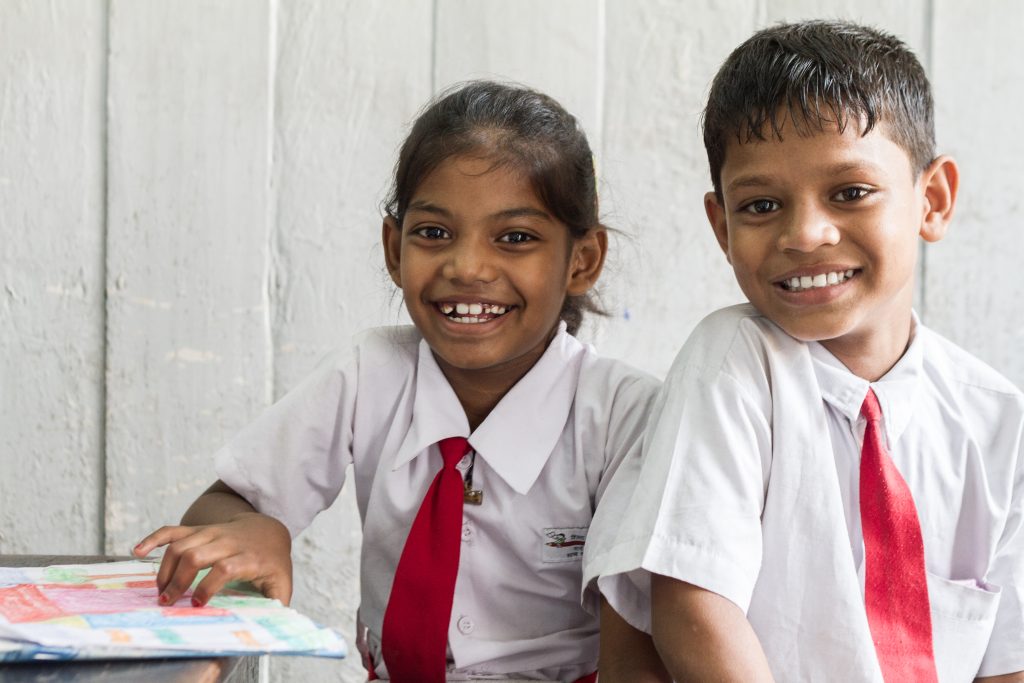
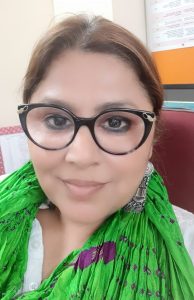
Access to quality education in India is a complex and multifaceted issue, with challenges such as illiteracy and limited resources. Despite government and non-profit efforts, many communities still lack opportunities for quality education. According to the 2011 census, the overall literacy rate in India stands at 74.04 per cent, which indicates a significant improvement over the years. However, this progress is uneven, with significant disparities between rural and urban regions. Gender inequality also persists, with a considerable gap in literacy rates between males and females.
Despite significant barriers plaguing education, the government’s efforts and the tireless work of non-profit organisations like Literacy India are promoting education and literacy in India. Through innovative programmes, the organisation is empowering communities and promoting a brighter future for all individuals in India.
Our Mission and Vision
At Literacy India, we envision empowering marginalised communities in India by providing educational and vocational training for a more equitable and sustainable future. We promote literacy and education among underprivileged children, youth, and women, especially in rural and urban slums. We strive to create a just and equitable society in India by providing creative educational programmes and activities that enable individuals to realise their full potential. We also offer women access to technical education and job opportunities to help them achieve financial independence and become active community members.
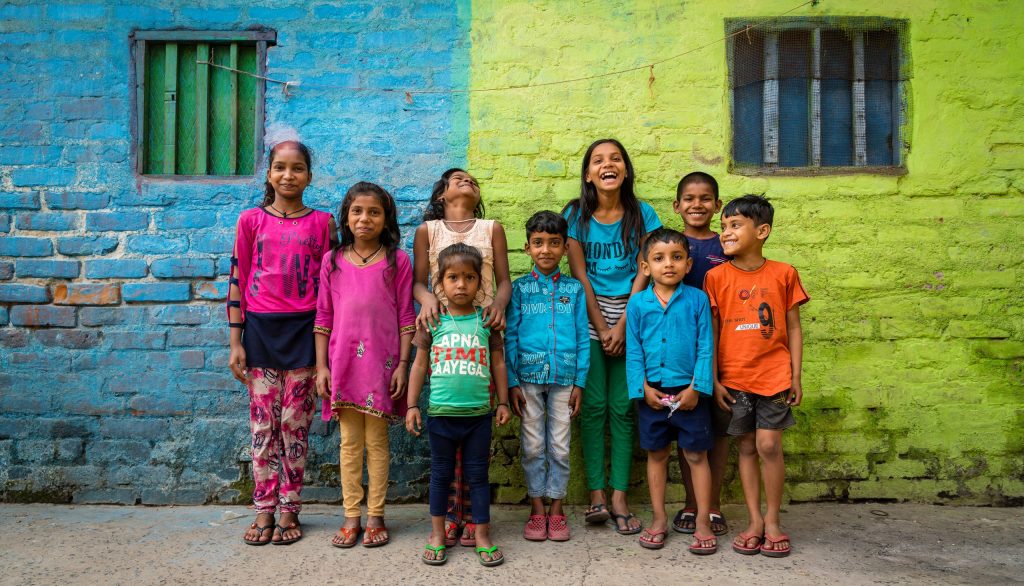
We work to address the root causes of illiteracy, such as poverty and gender inequality, and to promote community engagement and participation in education. To achieve an equitable society, we have developed a range of innovative and effective programmes that aim to provide access to quality education, vocational training, and life skills development.
Targeted Regions and Age Groups
We have worked in 17 States, and we currently operate in Delhi, Haryana, UP, Jharkhand, West Bengal, Gujarat, Rajasthan, and Ladakh. We target individuals and communities who lack access to quality education, including those living in slums, rural areas, and other marginalised communities within these regions.
We work with a range of individuals, including children, youth, and adults. We have developed specific programmes tailored to the needs of each age group, with a focus on providing access to education, vocational training, and life skills development.
Uniqueness of Literacy India’s Approach
We work to address the root causes of illiteracy, such as poverty and gender inequality, and to promote community engagement and participation in education. To achieve an equitable society, we have developed a range of innovative and effective programmes that aim to provide access to quality education, vocational training, and life skills development.
Some of our notable innovative contributions are:
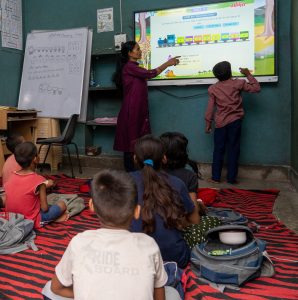 Gyantantra Digital Dost – This programme uses a gamified digital platform called the Gyantantra Learning Lab to develop critical thinking and problem-solving skills through interactive learning experiences. The platform engages students with real-world scenarios and challenges.
Gyantantra Digital Dost – This programme uses a gamified digital platform called the Gyantantra Learning Lab to develop critical thinking and problem-solving skills through interactive learning experiences. The platform engages students with real-world scenarios and challenges.
UNICEF selected the Gyantantra software as it has a relatable approach to engage the students using interactive games for 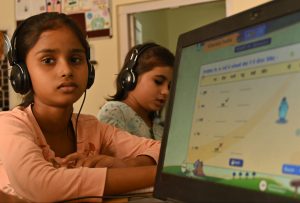 concepts. Gyantantra.org has a unique software download to track the progress of a child with a pre-test and post-three months test. This data helped regions like Rajasthan and Ladakh with minimal network connectivity to get the systems loaded with the software for once and use it later. Later, the data on the app is used to track an individual child’s progress.
concepts. Gyantantra.org has a unique software download to track the progress of a child with a pre-test and post-three months test. This data helped regions like Rajasthan and Ladakh with minimal network connectivity to get the systems loaded with the software for once and use it later. Later, the data on the app is used to track an individual child’s progress. 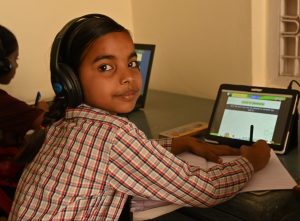 As of now, there are more than 45 centres that include the labs.
As of now, there are more than 45 centres that include the labs.
The programme is currently bridging the digital divide with UNICEF and several NGOs and government schools for 5000 children in Purnia district, Bihar, to provide individuals with the 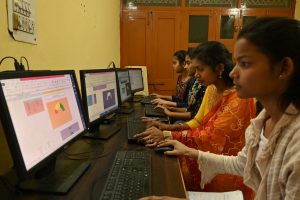 skills and knowledge needed to participate in the digital economy.
skills and knowledge needed to participate in the digital economy.
The Gyantantra Learning Lab provides interactive lessons, activities, and assessments across various subjects like science, math, social studies, and language arts. The platform includes a teacher dashboard for progress tracking and customising the learning experience to meet students’ needs.
The Power of Determination
|
Many students in government schools face obstacles to learning. Due to this, they struggle to keep up with their peers and risk falling behind academically. Pathshala is a remedial education programme that provides extra tutoring and support to students struggling with core subjects like Math, Science, and Language. We partner with government schools. We operate in multiple locations across India, including Delhi, Haryana, UP, Jharkhand, West Bengal, Rajasthan, and Ladakh.
Vidyapeeth (Non-Formal Education Centres) – We are currently operating several Non-Formal Education Centres (Vidyapeeth) in Gurugram, Haryana to provide basic education and life skills training to children who are unable to attend school. The Four Es – Education, Empowerment, Employment, and Environment – are the pillars of Project Vidyapeeth, which is driven by the idea of providing quality education to children regardless of their family’s financial situation.
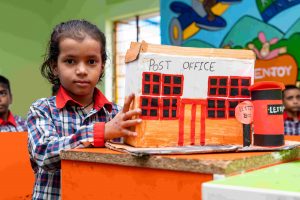
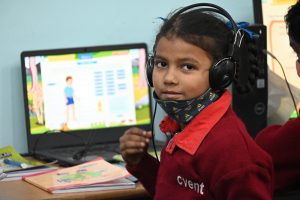
Pathshala – Many students in government schools face obstacles to learning. Due to this, they struggle to keep up with their peers and risk falling behind academically. Pathshala is a remedial education programme that provides extra tutoring and support to students struggling with core subjects like Math, Science, and Language. We partner with government schools. We operate in multiple locations across India, including Delhi, Haryana, UP, Jharkhand, West Bengal, Rajasthan, and Ladakh.
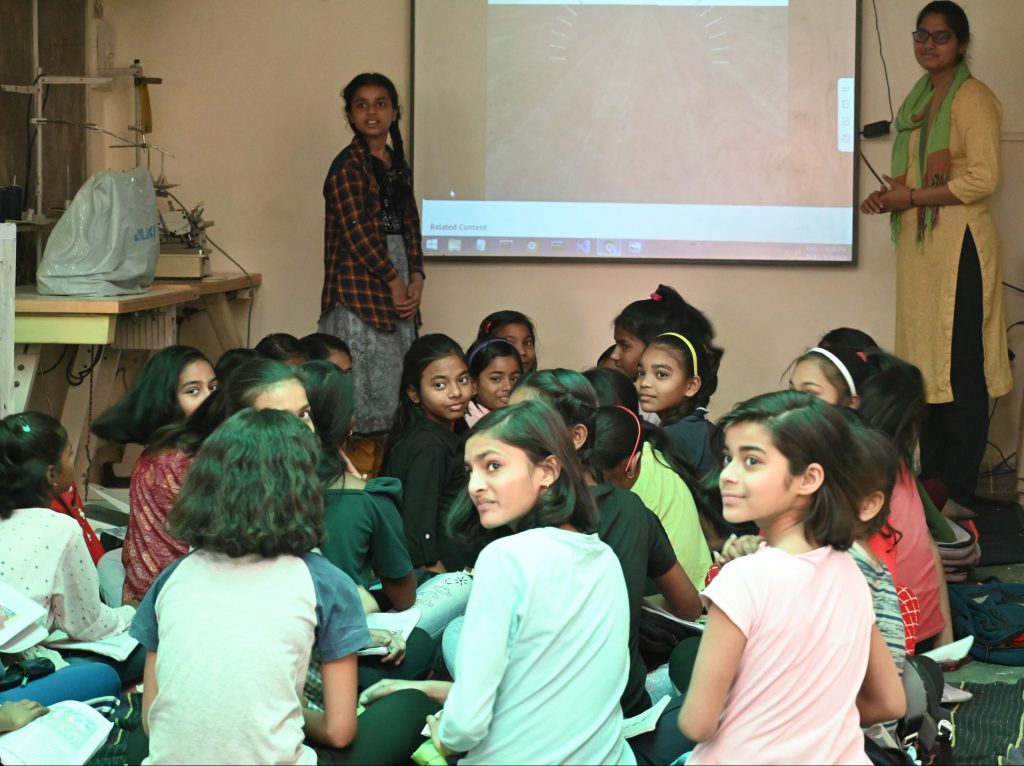
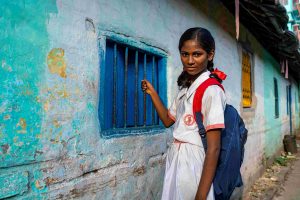
Gurukul – Gurukul is a financial assistance programme to provide quality education to children from economically disadvantaged backgrounds. These schools provide a safe and supportive environment where students receive education, vocational training, and life skills development. This initiative aims to provide learners with the information and abilities they need to improve their lives and become self-sufficient by granting them access to education and vocational training.
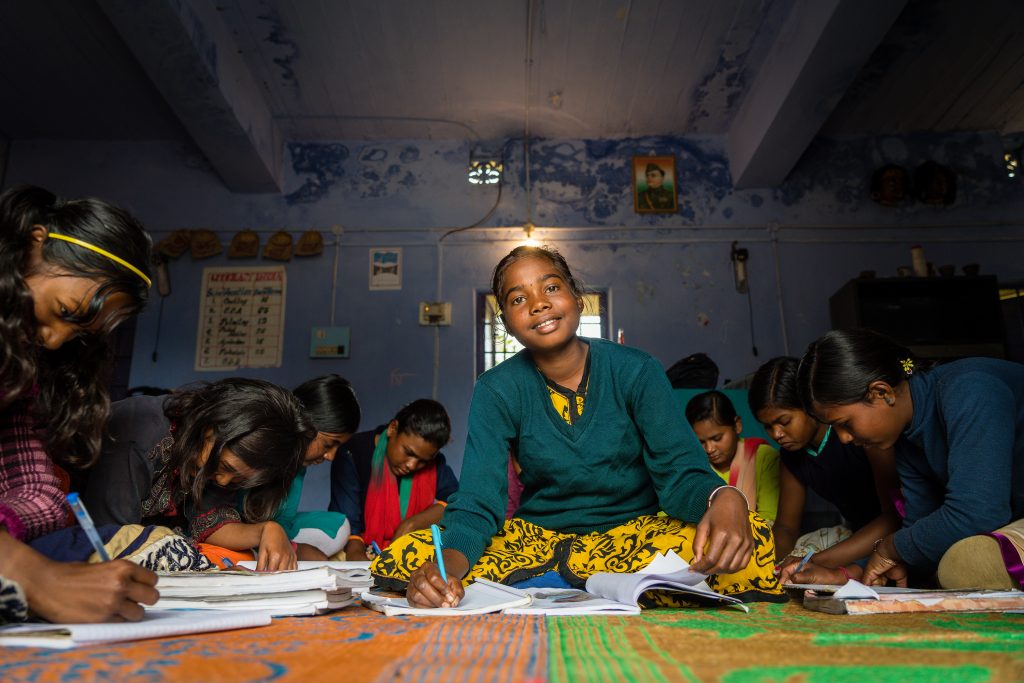
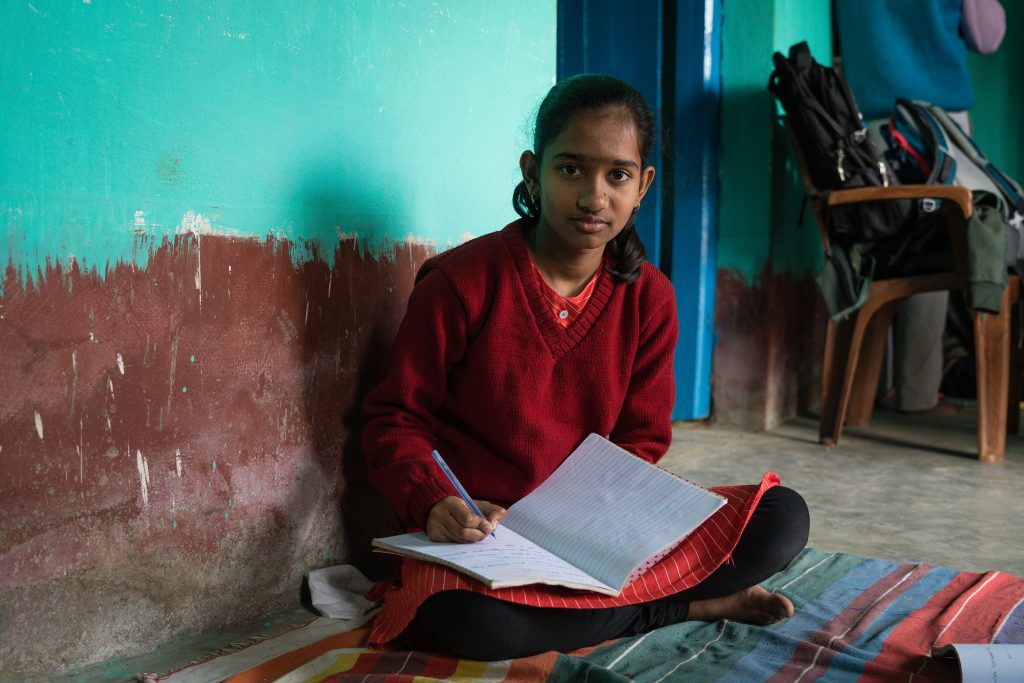
Shiksharth – This programme goes beyond traditional teaching methods to create a dynamic and holistic approach to education. By providing students with opportunities to express themselves through the arts, they develop a sense of confidence and creativity. The programme also emphasises the importance of social responsibility by involving students in community work, which not only benefits society but also instils values of empathy and compassion in the students. It is an innovative and effective way to enhance the educational experience and prepare students for a well-rounded and fulfilling life.
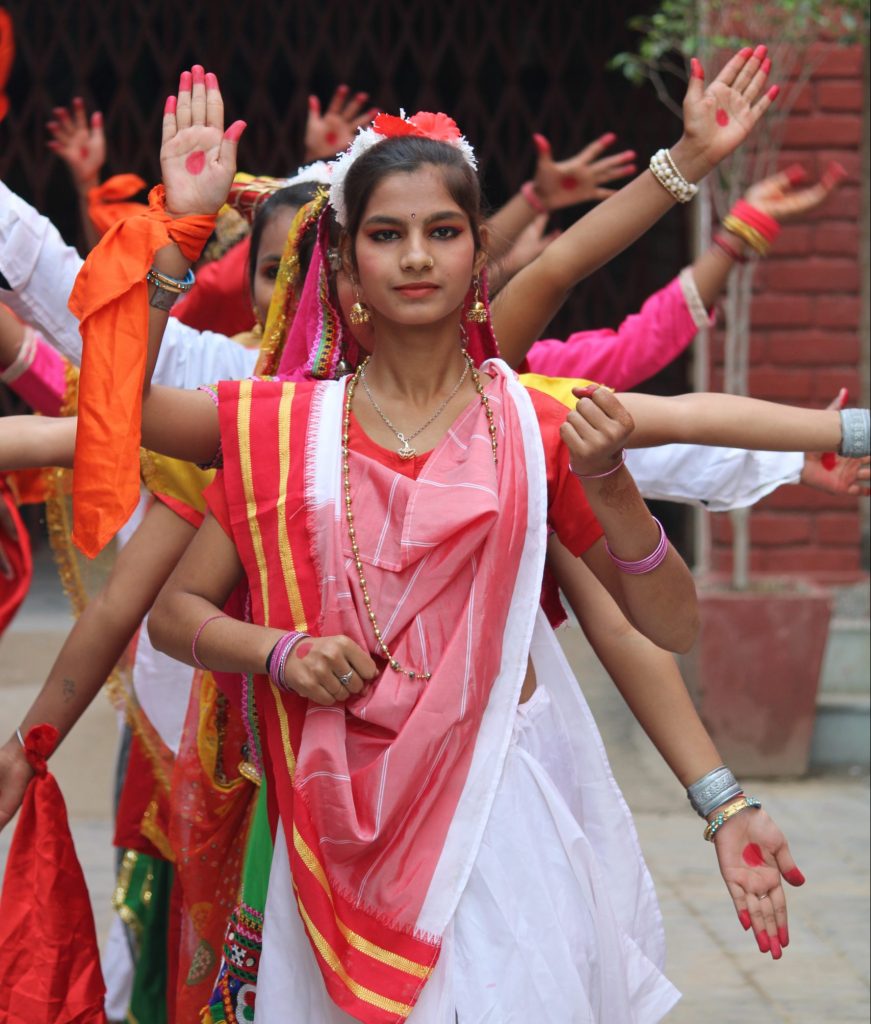
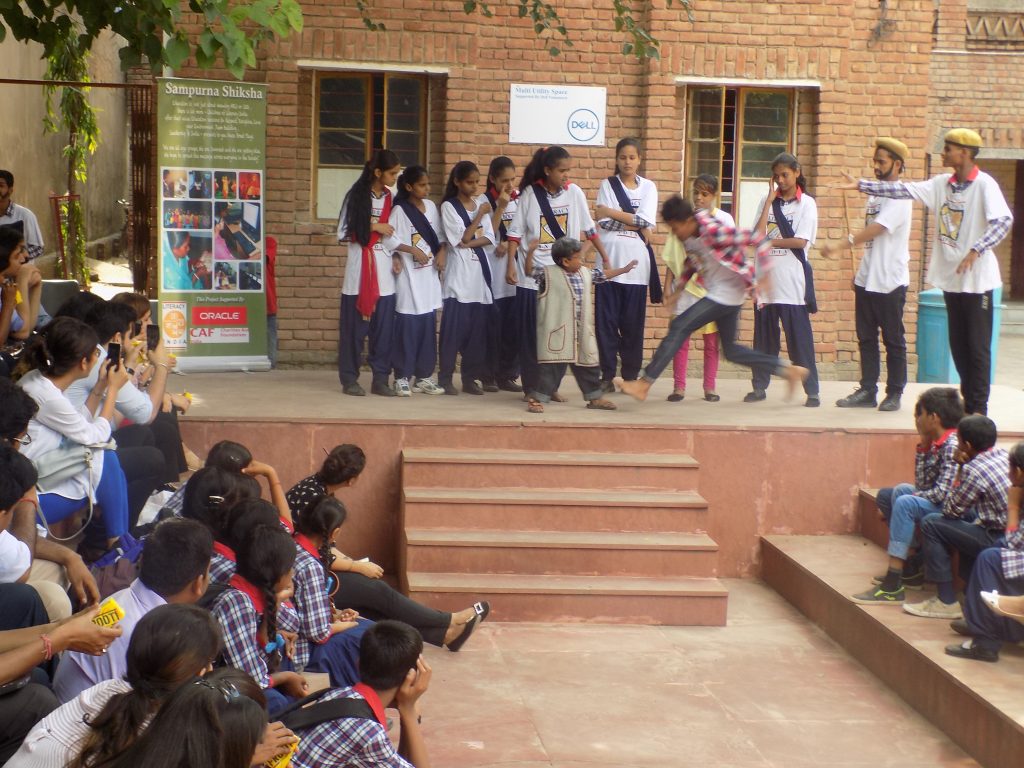
STEM Learning
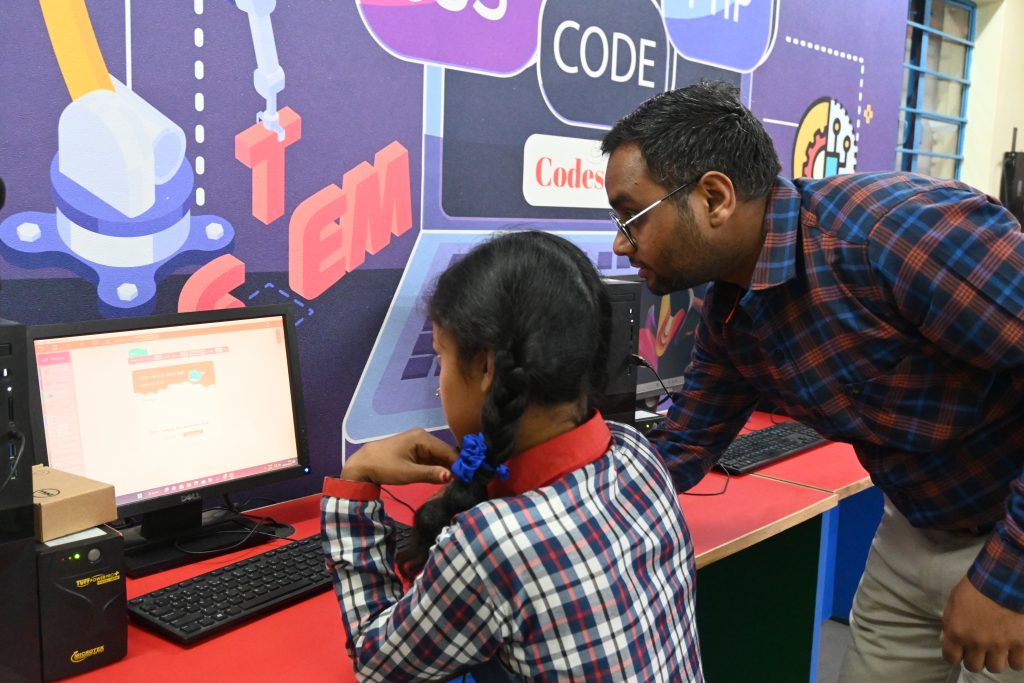 At Literacy India, we aim to enhance STEM learning for students by expanding the ToKo Tinkering Lab programme, which involves establishing a club for young tech innovators who can collaborate within the lab to develop their ideas and concepts further. We have partnered with Code.Org and Microsoft to broaden its reach
At Literacy India, we aim to enhance STEM learning for students by expanding the ToKo Tinkering Lab programme, which involves establishing a club for young tech innovators who can collaborate within the lab to develop their ideas and concepts further. We have partnered with Code.Org and Microsoft to broaden its reach 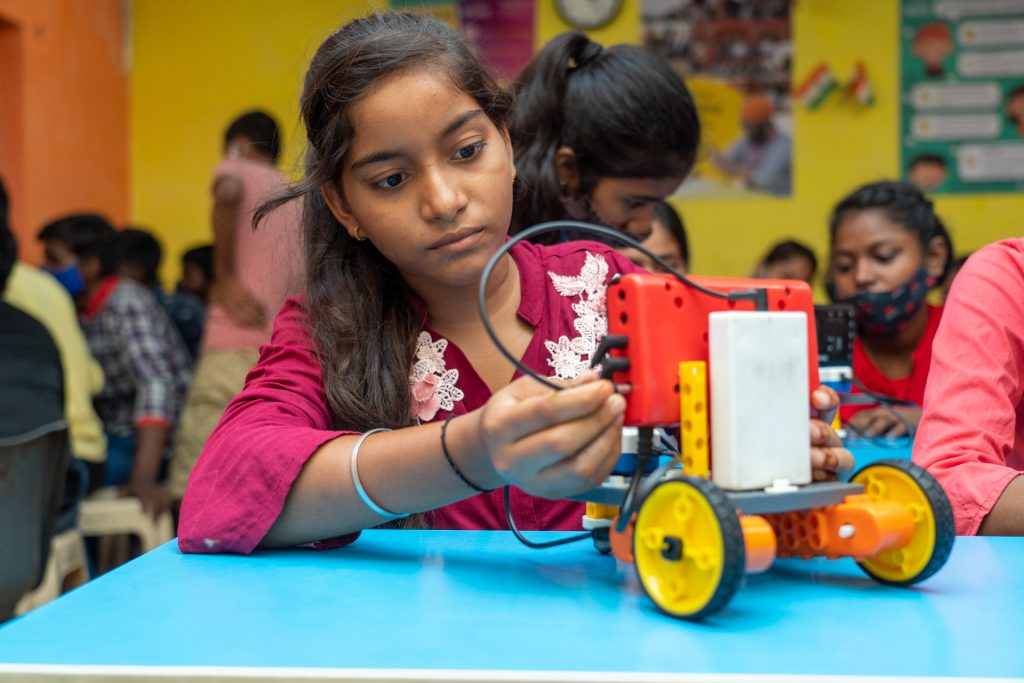 and have a more significant impact on learners.
and have a more significant impact on learners.
ToKo Tinkering Lab has already positively impacted over 5,728 students and has been a valuable addition to other learning modes. We have enabled over 3,000 coders, facilitated the 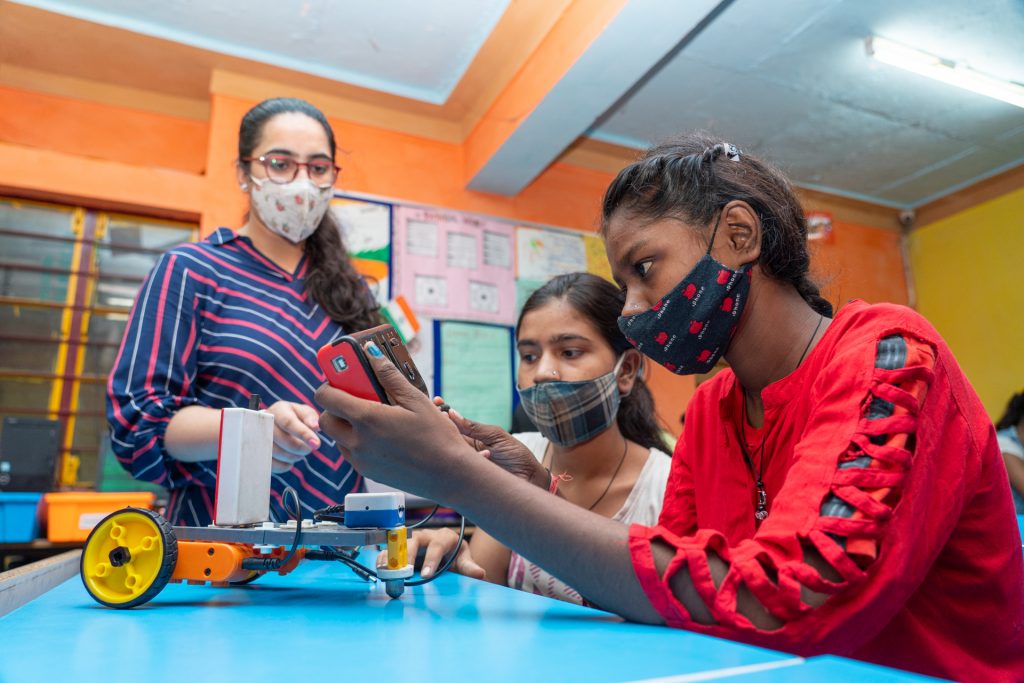 creation of 30,000+ programme applications and 6,000+ games, and imparted skills to 3,150 girls, which accounts for 55 per cent of the total students trained under this project. It has also enabled students to create various games, programmes, mobile applications, bots, and learning management systems.
creation of 30,000+ programme applications and 6,000+ games, and imparted skills to 3,150 girls, which accounts for 55 per cent of the total students trained under this project. It has also enabled students to create various games, programmes, mobile applications, bots, and learning management systems.
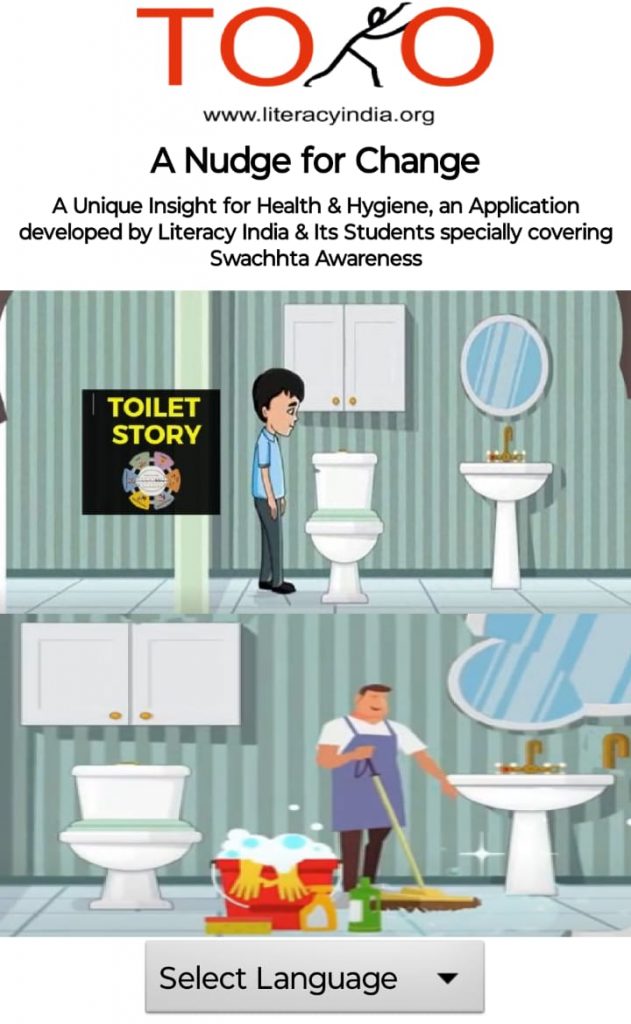 Students have developed games like Dogger, Puzzles, Simon, and board games like Snakes and Ladders. They have created mobile apps such as ToKo and learning management systems as part of their projects. They have developed bots like Spinning Chakra, Simple Humanoid, and Automated Restaurant, and created a cloth-folding machine and a human-following robot, showcasing their creativity and innovation.
Students have developed games like Dogger, Puzzles, Simon, and board games like Snakes and Ladders. They have created mobile apps such as ToKo and learning management systems as part of their projects. They have developed bots like Spinning Chakra, Simple Humanoid, and Automated Restaurant, and created a cloth-folding machine and a human-following robot, showcasing their creativity and innovation.
Partnerships with Schools: A Joint Initiative
We work with a range of educational institutions, including non-formal education centres and government schools. We have reached over 5,66,729 children and youth since our inception in 1996.
While selecting schools or institutes for the above initiatives, we partner with government schools, community-based organisations, and other educational institutions to provide education, vocational training, and life skills development to children and youth from marginalised communities.
Second ChancesNeetu
|
Enhancing Teachers’ Skills
Our teacher training programme is customised to meet the specific needs of each programme. It includes workshops, seminars, and on-the-job training delivered by experienced trainers and subject matter experts. It focuses on enhancing teachers’ skills and knowledge in pedagogy, subject matter, and technology, including teaching methods, classroom management, student engagement, assessment, and subject-specific training. It also covers the integration of digital tools and resources into the classroom.
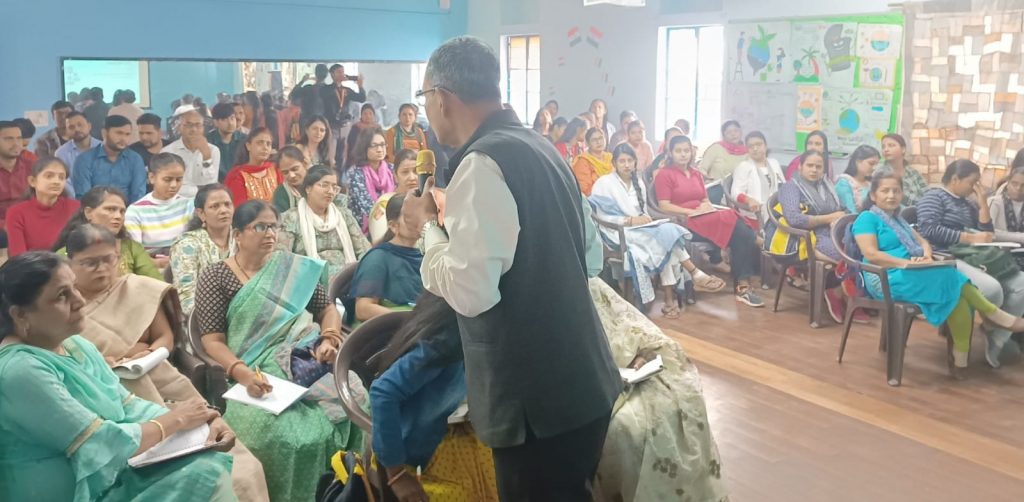
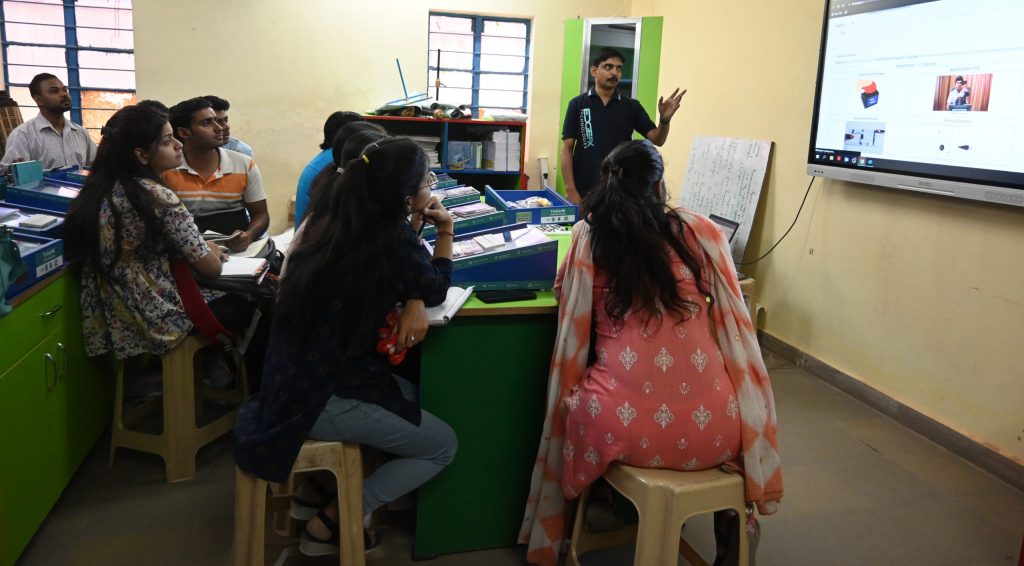
At Literacy India, we deploy innovative and alternative teaching methods and use technology to facilitate learning. Over the years, we have refined our approach and embraced modern teaching tools to make learning holistic. The future involves the integration of technology with pedagogy in elementary education to ensure educated, trained, confident and job-ready youngsters. A strong educational foundation is the only tool that will ensure employability and secure the future of children, impacting their immediate families, and ultimately having a positive impact on the community at large.
Community Engagement
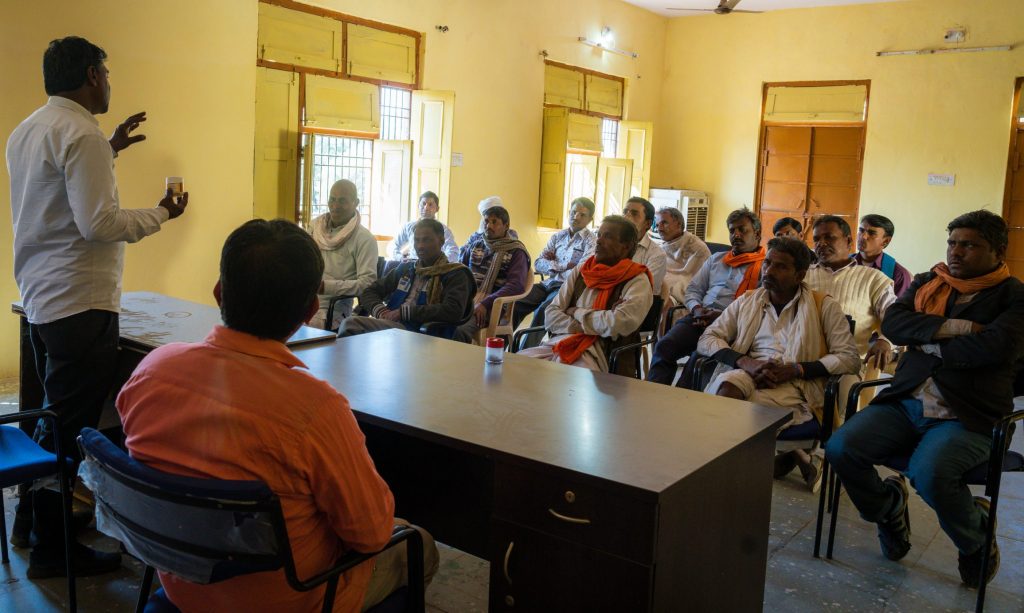 We recognise the importance of community engagement in our education initiatives. We actively involve various stakeholders, including parents, Panchayat leaders, and the broader community, in the design, implementation and evaluation of our programmes.
We recognise the importance of community engagement in our education initiatives. We actively involve various stakeholders, including parents, Panchayat leaders, and the broader community, in the design, implementation and evaluation of our programmes.
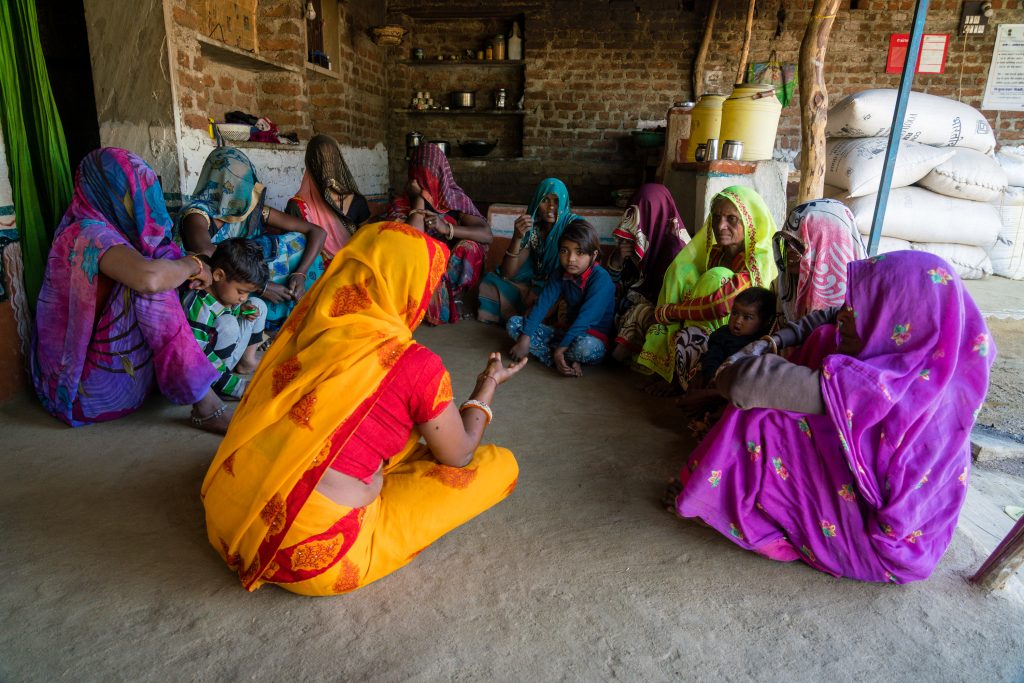 To involve parents, we encourage them to participate in parent-teacher meetings, where they can discuss their children’s progress and receive feedback from teachers. We also provide parents with resources and support to help them reinforce their children’s learning at home.
To involve parents, we encourage them to participate in parent-teacher meetings, where they can discuss their children’s progress and receive feedback from teachers. We also provide parents with resources and support to help them reinforce their children’s learning at home.
We engage with Panchayat leaders as important 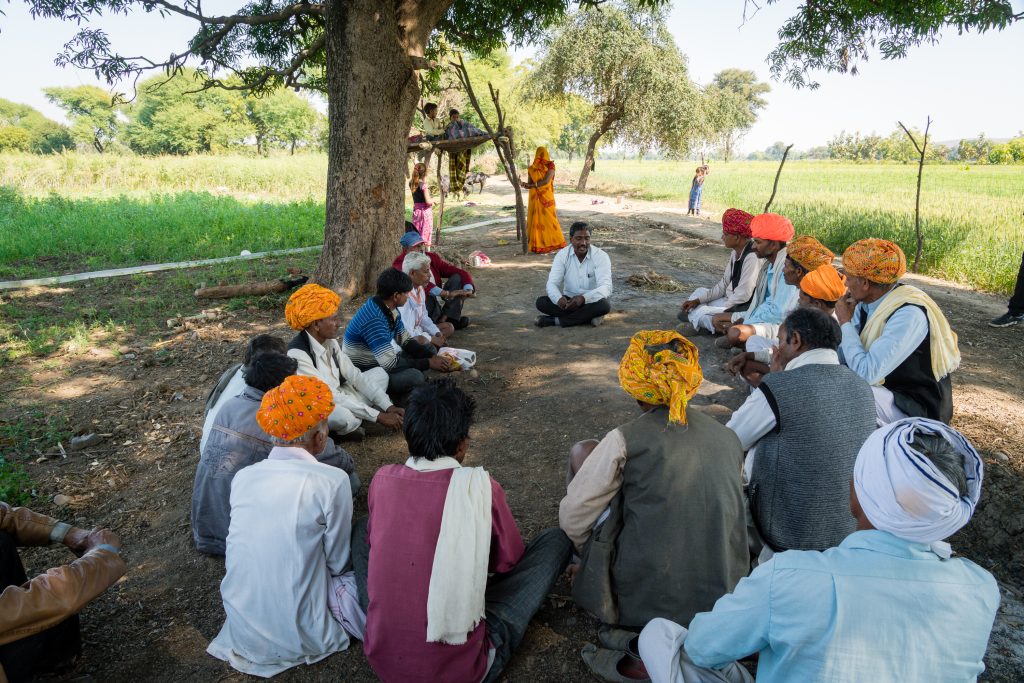 stakeholders, collaborating with them to align the programmes with local development plans and priorities. Leaders are involved in selecting communities and monitoring programmes. This creates a supportive environment for learning and promotes a culture of education. Collaboration with Panchayat leaders also ensures a sustainable impact on the broader community by aligning programmes with local development priorities.
stakeholders, collaborating with them to align the programmes with local development plans and priorities. Leaders are involved in selecting communities and monitoring programmes. This creates a supportive environment for learning and promotes a culture of education. Collaboration with Panchayat leaders also ensures a sustainable impact on the broader community by aligning programmes with local development priorities.
Pre and Post Scenario Success Measures
We made it a point to assess students’ academic and emotional levels before starting our initiatives. We do so by using periodic assessments, observations, and feedback from teachers, parents, and students to evaluate their progress. We track attendance and retention rates to ensure students stay motivated. We conduct a final assessment at the programme’s end to measure its effectiveness. We employ both quantitative and qualitative methods such as standardised tests, surveys and focus groups to evaluate them.
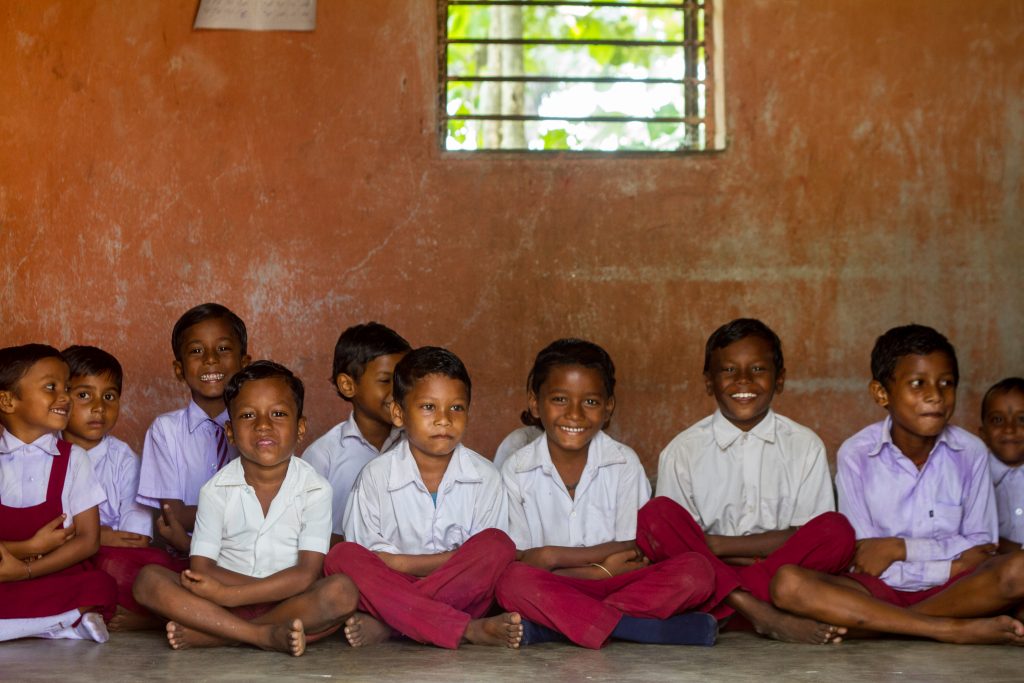
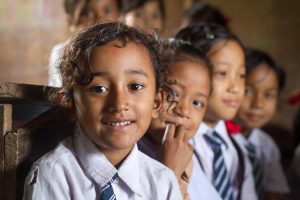
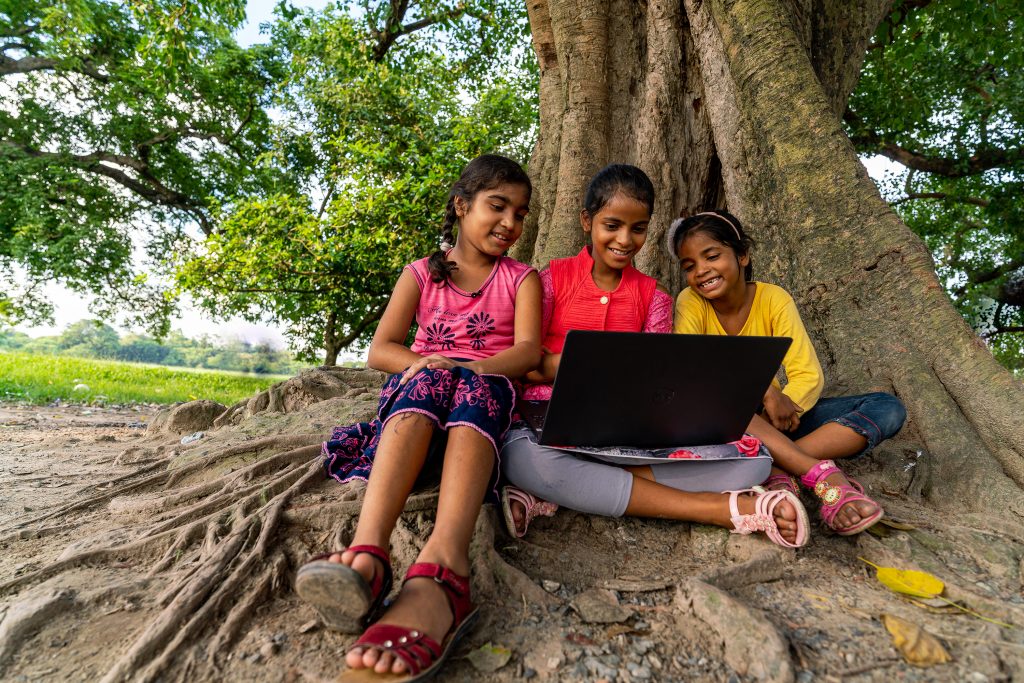
At Literacy India, we deploy innovative and alternative teaching methods and use technology to facilitate learning. Over the years, we have refined our approach and embraced modern teaching tools to make learning holistic. The future involves the integration of technology with pedagogy in elementary education to ensure educated, trained, confident and job-ready youngsters. A strong educational foundation is the only tool that will ensure employability and secure the future of children, impacting their immediate families, and ultimately having a positive impact on the community at large.


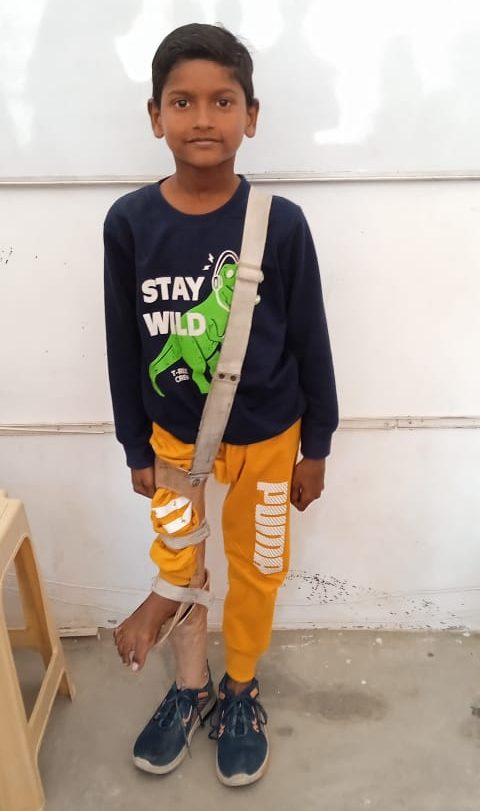 Mayank is from Shahpur, Noida, Uttar Pradesh. He was born with a disability in his right leg. His father is a labourer and his mother is a homemaker. Mayank is in Grade IV while his two older siblings are in Grade V. He is a very friendly boy who gets along with everyone.
Mayank is from Shahpur, Noida, Uttar Pradesh. He was born with a disability in his right leg. His father is a labourer and his mother is a homemaker. Mayank is in Grade IV while his two older siblings are in Grade V. He is a very friendly boy who gets along with everyone. 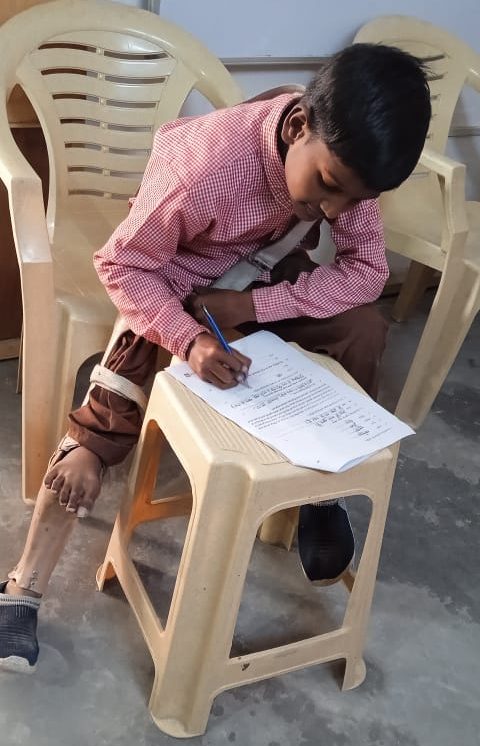 He consistently scored well in all subjects, with a remarkable improvement from 80 per cent in the Mid Term to 93 per cent in the Final Term.
He consistently scored well in all subjects, with a remarkable improvement from 80 per cent in the Mid Term to 93 per cent in the Final Term.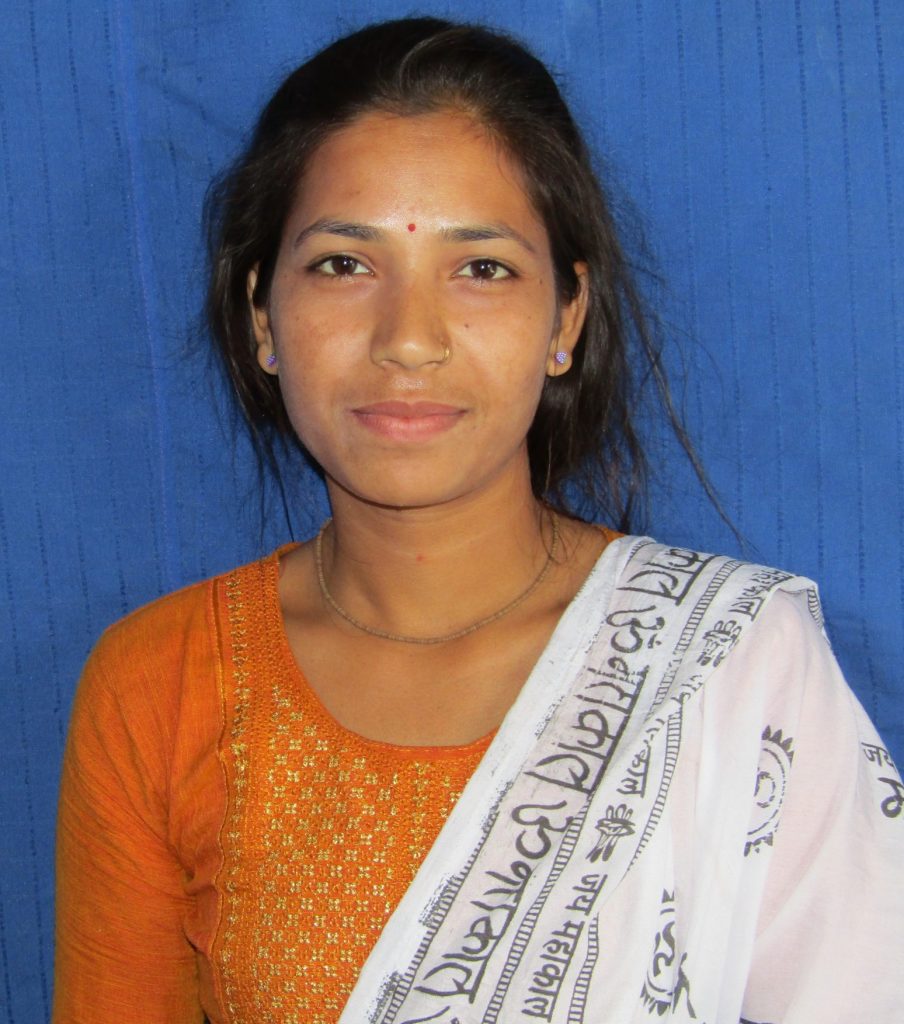 Twenty-six-year-old Neetu is a resident of Koriya Patan village in Manohar Thana, Rajasthan. She was forced to drop out of school (Grade IX) as her parents got her married. She had a difficult marriage and faced domestic violence, so she returned to her parents’ house.
Twenty-six-year-old Neetu is a resident of Koriya Patan village in Manohar Thana, Rajasthan. She was forced to drop out of school (Grade IX) as her parents got her married. She had a difficult marriage and faced domestic violence, so she returned to her parents’ house. 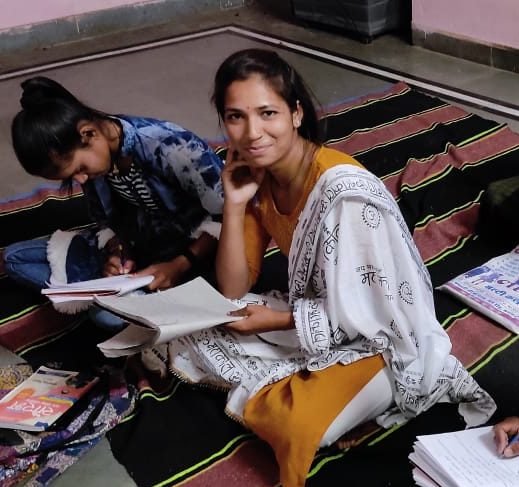 wants to excel in her pursuits to complete her education and become independent. She is also pursuing her cutting and tailoring course along with her academics.
wants to excel in her pursuits to complete her education and become independent. She is also pursuing her cutting and tailoring course along with her academics.